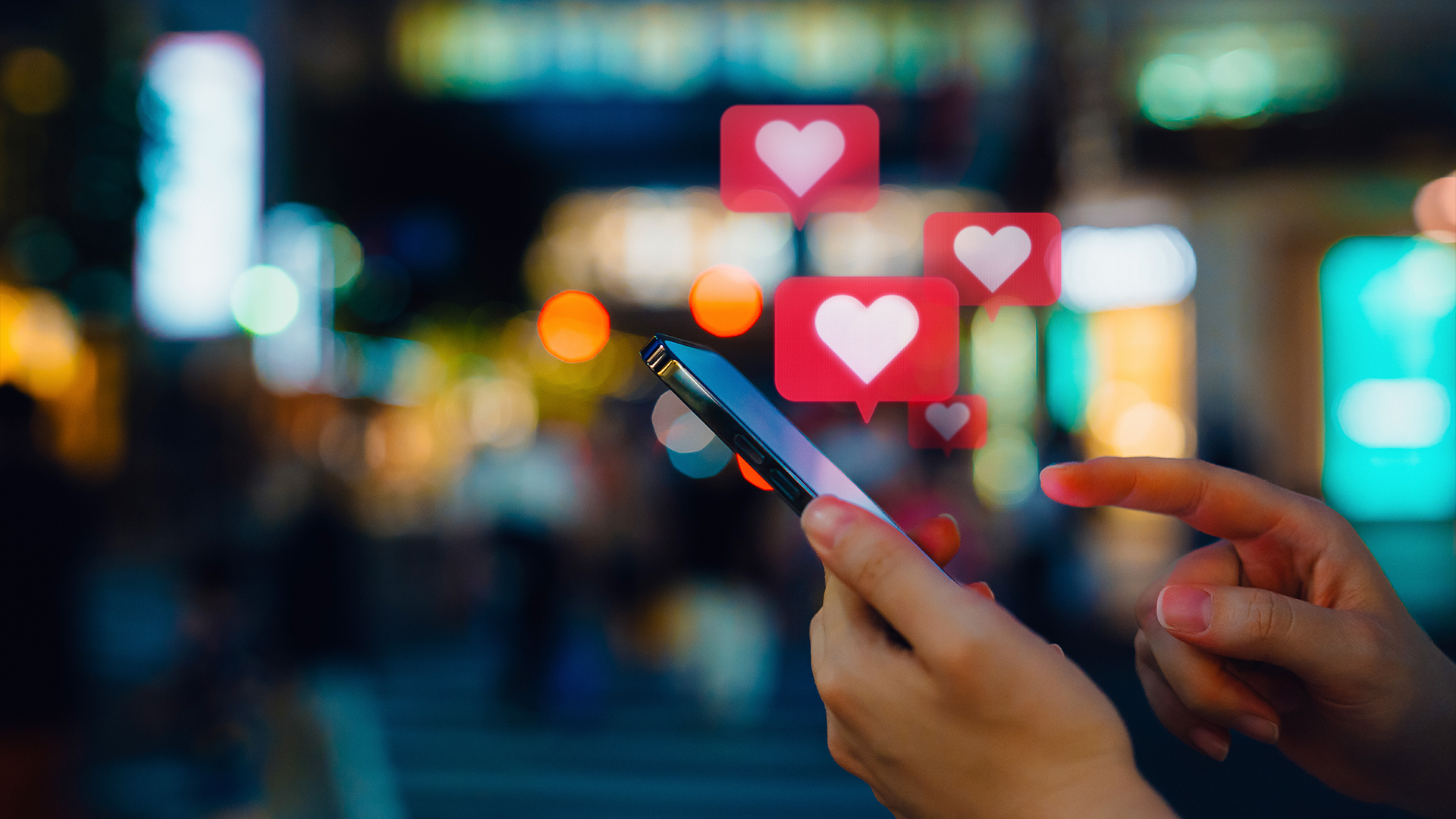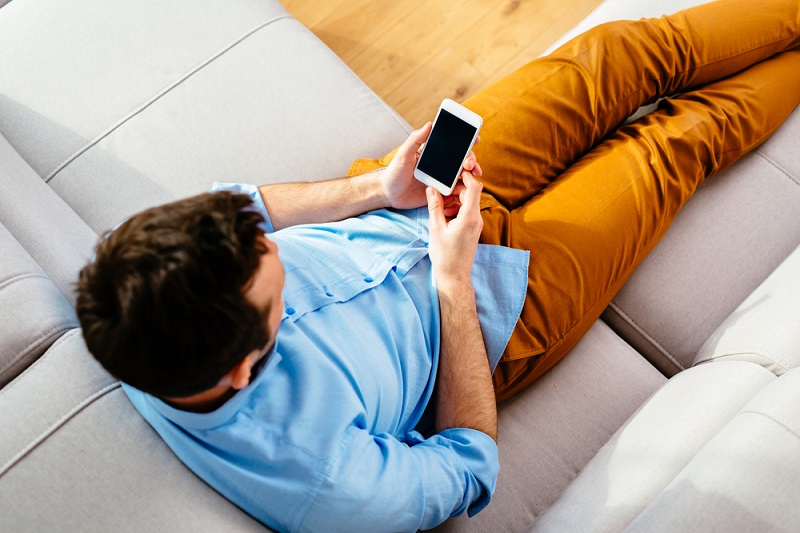
A lawsuit filed on Valentine's Day claims that several popular dating apps are "psychologically manipulative" and "addictive," encouraging "compulsive" use by people on the platforms.
The claim is aimed at Match Group, which owns a variety of online dating platforms including Tinder, Hinge, The League, Match and Plenty Of Fish. Depending on the outcome, the lawsuit could have wide-reaching implications, as an estimated 3 in 10 U.S. adults report having used a dating app at some point, according to the Pew Research Center.
But can a dating app really be addictive?
Related: Is there actually science behind 'dopamine fasting'?
Addiction to a behavior, rather than a substance
Among psychologists, terms like "addictive" can be controversial when applied to non-substances, such as video games or social media. Gambling disorder is the only non-substance addiction currently recognized by the Diagnostic and Statistical Manual of Mental Disorders (DSM-5), the gold-standard reference for psychological and psychiatric diagnosis used in the U.S.
However, the 11th Revision of the International Classification of Diseases (ICD-11), the manual of mental-health diagnoses released by the World Health Organization, also includes "gaming disorder," a condition in which people cannot stop using online or video games regardless of how much playing disrupts their daily lives.
Ultimately, what's going on in the brain when someone feels compelled to keep swiping on Tinder or scrolling on TikTok does look similar to what's happening when someone experiences physical addiction to a substance, said Larry Rosen, a professor emeritus of psychology at California State University, Dominguez Hills and co-author of "The Distracted Mind: Ancient Brains in a High-Tech World" (MIT Press, 2016).
This is because connecting with a new match on Tinder or seeing a new notification pop up on a social site provides a burst of dopamine in the brain, Rosen told Live Science. "What's interesting is that a little bit of dopamine makes you feel good for a while," he said, "and then you habituate to it, and now you need more dopamine to feel just as good."
The urge to chase this dopamine high via dating apps is not perfectly analogous to becoming physically dependent on a drug. Because of that, stopping using dating apps is not as physically devastating as going through withdrawal from an alcohol addiction or heroin habit, for example. But in some ways, the underlying biochemistry is similar, Rosen said.
"Addiction is real and it's biological; it's our human need to feel good," he said. "So yes, this is a form of addiction," Rosen argued.
Related: Why do we get addicted to things?
Disagreement about the term "addiction"

Not everyone approves of using addiction language to describe people's use of dating apps, however. Kathryn Coduto, a professor of media science at Boston University who has studied dating apps since they first appeared on the market, said she sees addiction as a "really strong" term.
"I hesitate to act like users don't have a sense of control or determination over the technology, at the end of the day," she told Live Science. "That's not to say users are totally in control when they're using technology, or that there isn't a way to hold tech companies accountable."
The new class-action lawsuit, filed in federal court in California on Feb. 14, argues that dating apps promise to get their users off the sites as quickly as possible by efficiently pairing them with compatible people. Hinge's tagline, for example, is "The dating app designed to be deleted." But the app designers, the lawsuit argues, then employ "psychologically manipulative features to ensure they [users] remain on the app perpetually as paying subscribers."
These features, the lawsuit posits, are contrary to the apps' stated goal to get users real-life dates so they don't have to use the service anymore. Some of the game-like features on Tinder include the app's "deck of cards" style interface, in which users swipe left or right to reject or like potential dates rapidly, as well as pay-to-play features like "Super Boosts," which drive more views to a user's profile during peak usage times. The lawsuit specifically objects to Hinge's tagline, given the strategies it and other apps use to keep users engaged.
In a statement to Reuters, Match Group called these claims "ridiculous."
Related: Loneliness is bad for your health, study suggests
The drive to engage users and keep them on a platform goes well beyond dating apps, Rosen said. "Every single company has at least one, if not more, people on staff who have a PhD in psychology or social science," he said. "They are tasked with one job, which is to get eyeballs there and keep them there."
Dating apps are particularly motivated to keep users swiping, Coduto agreed. Without users, there is no dating pool. Without a dating pool, there is no dating app, she said.
The strategies companies use to do this are largely based on positive reinforcement, Rosen said. Positive reinforcement provides a reward for a desirable behavior — in this case, staying engaged with the app — so that the recipient is encouraged to do it more in the future. (That's opposed to negative reinforcement, which rewards a behavior by removing an undesirable stimulus when people do it.)
"Sometimes the best positive reinforcements are nothing tangible," Rosen said. "They're applause; they're congratulations; they're your name on the leaderboard. The better you feel, the more likely you are to go and play."
These apps also plug into the anxiety of an unchecked notification, Rosen added. Imagine getting a text message but not being able to immediately pick up your phone and see what it says. Feel stressed? That reflects rising levels of the stress hormone cortisol in your system. Check the message and satisfy your curiosity, and those cortisol levels will drop.
Compulsive use of apps
Many people do struggle with compulsive use of all kinds of apps, said Dr. Brett Kennedy, a psychologist and the co-director of the Digital Media Treatment & Education Center in Boulder, Colorado.
In psychology, a "compulsion" refers to a behavior that a person feels a strong urge to do, often repeatedly, to reduce feelings of anxiety or stress. Research has shown that taking away someone's mobile device can be an anxiety-inducing event; in one 2014 study, researchers forced college students to sit quietly without their phones for 75 minutes. They found that all but the lightest users became more anxious the longer they were without their phones.
"We really have this anxiety or FOMO, the fear of missing out," Kennedy said. The constant accessibility of technology, he said, "sets the stage for people to lose perspective on what that actual balance is. And some people are better than others at it."
Related: What does love do to your brain?
In a 2020 study, Coduto found that people who scored higher on a standard scale of social anxiety were more likely to report that they could not control their use of dating apps, especially if they also reported experiencing loneliness.
"For someone who is socially anxious, being on a dating app probably feels a little bit safer [than making a pass at someone in person]," she said. The tradeoff, she said, is that "that safely feels almost like endless potential." Your next match could be just a few swipes away, the apps claim.
There is a positive side to the gamification of apps, Coduto said — these strategies do make using the apps fun and rewarding, and for some people, that level of whimsy might be just what they're looking for in their dating life. For people who are struggling to rein in their use of the apps, though, strategies to limit their time with tech are often helpful, Kennedy said.
"I often have to work with people to structure their time and to be purposeful with their time and the use," he said. "And to educate them on this reality — that it is not designed for you to be purposeful and mindful."
Just because psychological scientists have found evidence of addictive or compulsive use of dating apps doesn't mean the lawsuit will succeed; the ultimate outcome of the lawsuit will also involve interpreting consumer-protection law. But the results could be interesting for the future of dating apps, Coduto said.
"I'm very curious to see how legal definitions of things like 'addictive' and 'compulsive' come into play," she said.
Ever wonder why some people build muscle more easily than others or why freckles come out in the sun? Send us your questions about how the human body works to community@livescience.com with the subject line "Health Desk Q," and you may see your question answered on the website!







